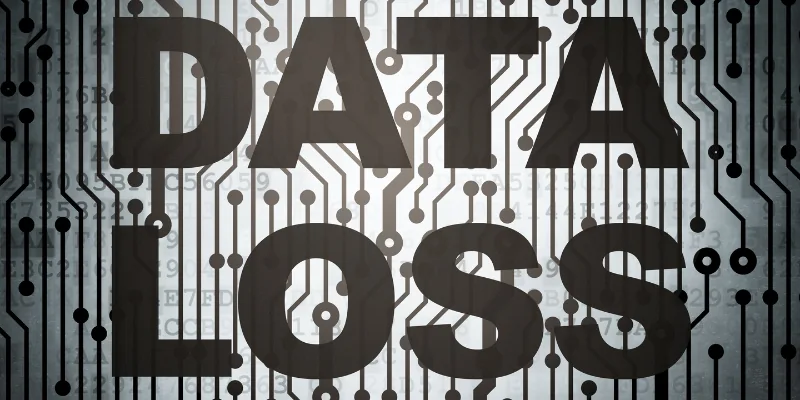Disadvantages of Computer in Offices for Productivity Loss
Published: 25 Feb 2025
In today’s offices, computers are essential tools for productivity, much like how cars are essential for commuting. However, while cars offer convenience in transportation, they also come with their own set of challenges, maintenance costs, traffic jams, and environmental impact. Similarly, while computers streamline work processes, they come with their own drawbacks, such as health issues, security risks, and potential distractions. Unlike the straightforward challenges of car ownership, the disadvantages of computers in the office can often be subtle and affect various aspects of both personal well-being and company operations. This post will explore those Disadvantages of Computer, highlighting the unique hurdles businesses face in balancing the benefits and drawbacks of modern technology. The major disadvantages of computer in offices are following:
Dependency on Technology
Computers have made work easier, but employees can become too dependent on them. If systems fail or crash, work may stop completely. Offices that rely too much on computers may struggle when there are technical problems.
- Work slows down if computers break or software crashes.
- Power outages can cause loss of unsaved work.
- Employees may lack problem-solving skills without computers.
- Technical failures can delay important tasks.
- Over-reliance on automation may reduce critical thinking.
- Work may stop if the internet goes down.
- Data loss can occur if systems fail.
- Employees may become less engaged in manual tasks.
- Companies may struggle if software updates cause issues.
- Workers may forget basic skills like handwriting or mental calculations.
Cybersecurity Risks
Computers store sensitive office data, but they are vulnerable to hacking, viruses, and data breaches. A small mistake, such as clicking on a phishing email, can expose the company to serious risks. Protecting office systems requires constant security updates.
- Hackers can steal company and client data.
- Viruses and malware can corrupt important files.
- Weak passwords make systems easy to hack.
- Phishing attacks trick employees into sharing sensitive information.
- Data loss can happen due to ransomware attacks.
- Security breaches can damage a company’s reputation.
- Employee accounts can be compromised if login details are stolen.
- Companies must spend money on security software and training.
- Regular security updates are needed to stay protected.
- Remote work increases cybersecurity risks.

Health Issues
Sitting in front of a computer for long hours can cause health problems. Eye strain, back pain, and repetitive strain injuries (RSI) are common among office workers. Without proper breaks and ergonomic setups, these issues can get worse.
- Prolonged screen time leads to eye strain and headaches.
- Poor posture can cause neck and back pain.
- Typing for long hours can lead to wrist pain or carpal tunnel syndrome.
- Sedentary work increases the risk of obesity and heart disease.
- Poor lighting can worsen eye discomfort.
- Long work hours can cause mental fatigue and stress.
- Employees may develop poor sleeping habits.
- Staring at screens for too long can cause dry eyes.
- Lack of movement can reduce blood circulation.
- Uncomfortable workstations can cause chronic pain.

Technical Issues
Computers are complex machines that can experience many technical problems. Slow performance, software crashes, or system errors can disrupt office tasks. Fixing these issues requires IT support, which can be costly and time-consuming.
- Slow computers can reduce productivity.
- Software crashes may cause employees to lose work.
- System updates can create compatibility issues.
- Viruses and malware can corrupt important files.
- Internet connectivity issues can delay work.
- Hard drive failures can lead to data loss.
- Printer malfunctions can slow down document processing.
- Employees may waste time troubleshooting problems.
- Outdated software may not support new features.
- IT support is needed for frequent repairs.
Job Loss
As offices automate tasks with computers, some jobs become unnecessary. Employees who perform manual work may lose their jobs if computers replace their roles. This can increase job insecurity in many industries.
- Automation reduces the need for manual data entry jobs.
- AI-powered tools replace customer service representatives.
- Fewer employees are needed for administrative tasks.
- Automated billing reduces the need for accountants.
- Digital marketing tools replace traditional marketing jobs.
- Companies prefer software over hiring more employees.
- Robots and AI can perform repetitive tasks faster.
- Self-service kiosks replace front-desk workers.
- Online booking systems reduce the need for travel agents.
- Over-reliance on technology leads to job losses.

High Costs
Computers require regular maintenance, updates, and repairs, which add to office expenses. Businesses must invest in new software and hardware to keep systems running efficiently.
- Software updates may require additional costs.
- Regular hardware repairs increase company expenses.
- Upgrading office computers can be expensive.
- Security software subscriptions add to costs.
- Newer technology may require frequent replacements.
- IT staff is needed to maintain office computers.
- Data backup systems require investment.
- Server maintenance increases operating costs.
- Technical training for employees adds to expenses.
- Licensing fees for software can be costly.
Distractions
Computers provide access to social media, online games, and entertainment, which can distract employees. If not properly managed, these distractions can reduce productivity and focus during work hours.
- Social media browsing can waste office time.
- Online shopping distracts employees from tasks.
- Watching videos or playing games reduces efficiency.
- Too many notifications can break concentration.
- Personal emails can interfere with office work.
- Instant messaging apps can be misused for non-work purposes.
- Frequent multitasking can lower overall work quality.
- Online distractions reduce employee engagement.
- Employees may waste time reading non-work-related articles.
- Lack of monitoring can increase misuse of office computers.

Environmental Impact
Computers contribute to electronic waste (e-waste) and energy consumption. Offices that rely heavily on computers increase their carbon footprint.
- Old computers contribute to electronic waste.
- High energy consumption increases electricity bills.
- Improper disposal of devices harms the environment.
- Manufacturing computers uses non-renewable resources.
- Office cooling systems must work harder due to heat from computers.
- E-waste recycling is not always available.
- Frequent upgrades increase the demand for new materials.
- Servers consume large amounts of power.
- Battery waste from laptops and devices adds to pollution.
- Non-biodegradable components make disposal difficult.
Data Loss
If data is not backed up properly, companies risk losing important files. Accidental deletions, power failures, or system crashes can result in permanent data loss.
- Hard drive failures can erase critical data.
- Power outages may cause unsaved work to disappear.
- Accidental deletions can remove important files.
- Malware can corrupt or delete data.
- Cyberattacks can wipe out entire databases.
- Ransomware can lock companies out of their files.
- Employees may forget to save or back up files.
- Improper storage can lead to data corruption.
- Cloud storage security breaches can result in lost information.
- Recovering lost data can be expensive and time-consuming.

Information Overload
Too much information can overwhelm employees, making it hard to focus. With endless emails, notifications, and files, managing digital content becomes a challenge.
- Email overload makes it hard to find important messages.
- Too many notifications cause distractions.
- File clutter slows down work processes.
- Excessive data storage can confuse employees.
- Unorganized digital records make searching difficult.
- Information overload leads to stress.
- Employees may ignore important emails due to spam.
- Large amounts of data require extra storage.
- Searching for specific files can waste time.
- Too many digital tools can complicate workflows.
Computers cause eye strain because we focus on screens for long periods without blinking enough. This leads to dryness, fatigue, and discomfort. To avoid this, remember the 20-20-20 rule: every 20 minutes, look at something 20 feet away for at least 20 seconds.
To prevent pain, make sure your chair supports your lower back, and keep your feet flat on the floor. Adjust your screen to eye level so you don’t have to tilt your head. Taking regular breaks to stretch can also help reduce discomfort.
Common risks include hackers stealing sensitive data, viruses that damage your system, and phishing attacks where attackers trick you into revealing personal information. Using strong passwords and up-to-date security software can protect your data. Avoid clicking on suspicious links or emails to stay safe.
Over-reliance on computers can limit creativity by making us dependent on digital tools for every task. It can also reduce face-to-face brainstorming and problem-solving. Try mixing digital and traditional methods, like sketching ideas on paper, to boost creativity.
Turn off notifications for apps and social media during work hours. Use productivity tools like website blockers to stay focused on tasks. Try setting a timer to work in focused intervals and take breaks afterward.
Use strong, unique passwords for each account and enable two-factor authentication whenever possible. Install trusted antivirus software to scan for threats. Be careful when using public Wi-Fi networks and avoid accessing sensitive information on them.
Yes, sitting for long periods can lead to weight gain, poor posture, and even heart disease. To avoid this, try to stand up and move around every 30 minutes. Stretching can also help relieve tension and improve circulation.
Regularly update software to prevent security issues, and clean your hardware to avoid dust buildup. Invest in quality equipment that lasts longer and reduce the need for frequent repairs. Train employees to handle basic troubleshooting to cut down on IT support costs.
Make sure to have regular face-to-face meetings or video calls to discuss important topics. Encourage open discussions and team-building activities to strengthen relationships. Balance digital communication with in-person interaction for better collaboration.
Yes, computers consume energy and contribute to electronic waste when they’re discarded. To reduce your impact, recycle old devices, use energy-efficient equipment, and turn off computers when not in use. Consider switching to eco-friendly technology options whenever possible.
Conclusion:
So guys, in this article, we’ve covered the Disadvantages of Computers in Offices in detail. It’s clear that while computers enhance productivity, they can also lead to problems like physical strain and cybersecurity threats. My advice? Prioritize health and security by implementing smart habits, like regular breaks and updated software. Don’t let these disadvantages hold you back from creating a better work environment. Start small, and see how improving one aspect can make a difference! Feel free to share your tips or ask any questions in the comments section.

- Be Respectful
- Stay Relevant
- Stay Positive
- True Feedback
- Encourage Discussion
- Avoid Spamming
- No Fake News
- Don't Copy-Paste
- No Personal Attacks

- Be Respectful
- Stay Relevant
- Stay Positive
- True Feedback
- Encourage Discussion
- Avoid Spamming
- No Fake News
- Don't Copy-Paste
- No Personal Attacks
